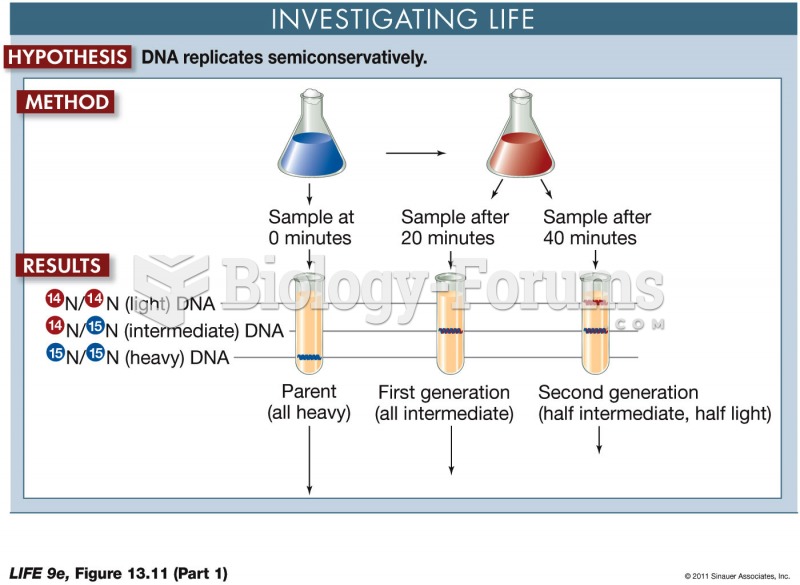|
|
|
People with high total cholesterol have about two times the risk for heart disease as people with ideal levels.
Between 1999 and 2012, American adults with high total cholesterol decreased from 18.3% to 12.9%
The top 10 most important tips that will help you grow old gracefully include (1) quit smoking, (2) keep your weight down, (3) take supplements, (4) skip a meal each day or fast 1 day per week, (5) get a pet, (6) get medical help for chronic pain, (7) walk regularly, (8) reduce arguments, (9) put live plants in your living space, and (10) do some weight training.
The first documented use of surgical anesthesia in the United States was in Connecticut in 1844.
Alcohol acts as a diuretic. Eight ounces of water is needed to metabolize just 1 ounce of alcohol.







